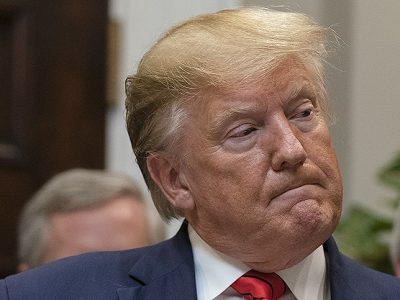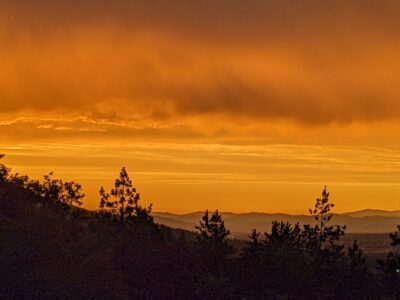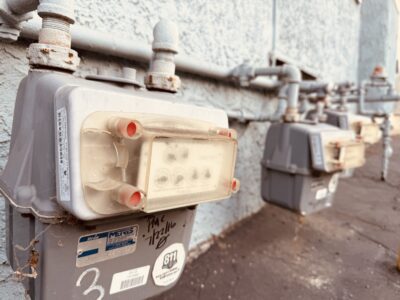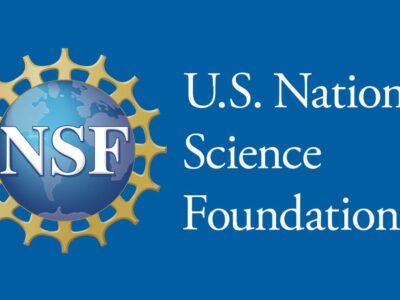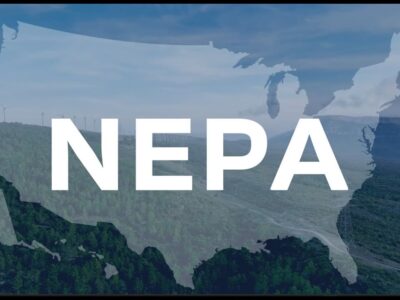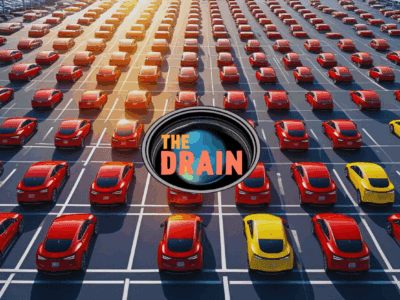Emergency Powers Aren’t What They Used to Be
In the post-WW2 era, courts bent over backwards to accomodate emergency actions. Not true today, as Trump is finding out.
In mid-century America, emergency powers were truly potent. But those days are gone. In his two terms as President, Trump has declared 21 national emergencies, including eight since January 20. This glut of "emergencies" can only further discredit the whole concept. He and his advisors seem to see those as creating nearly magical legal powers, allowing them to deport people without hearings, run roughshod over environmental safeguards, and impose tariffs willy-nilly. The...
CONTINUE READINGTime for a Positive Vision of America’s Environment
Restore and Respect America the Beautiful
With the Trump Administration attacks on climate science, renewable energy, research, power plan emissions standards, EVs, national monuments, and pretty much anything that smacks of environmental protection, it is not surprising that most responses from the environmental community and the Democratic party have been to defend the status quo. The defensive posture has resulted in a perceived lack of vision or alternative. With that in mind, here’s a pretty straight...
CONTINUE READINGMayor NIMBY
Karen Bass' blocking of duplexes in devastated communities is a nasty piece of plutocracy.
Los Angeles Mayor Karen Bass gets a lot of unfair grief from the media and from Angelenos. Many criticized her for being out of the country when the Palisades Fire struck: but she was abroad in Africa representing President Biden (when in Congress one of her areas of expertise was Africa), and mayors do this sort of thing all the time. Now attorneys are suing the City for alleging not having enough water in municipal reservoirs during the fire, although shortages did not...
CONTINUE READINGFrom Sacramento to Geneva: Two Arenas Tackle Plastic Pollution
California considers adding microplastics to its Candidate Chemical List as delegates negotiate a Global Binding Treaty on Plastics in Switzerland
Last Monday, the California Department of Toxic Substances Control (DTSC) closed its public comment period on a proposal to add microplastics to its Candidate Chemicals List. Adding microplastics to this list would allow the State’s Safer Consumer Product Program to evaluate potential Priority Products that may contain or release microplastics. The Program works to make products safer for people and the environment by identifying and promoting products that use saf...
CONTINUE READINGGas Utilities Can Do Better on Neighborhood Electrification
The state’s largest gas utilities are trying to delay priority zones for decarbonization and to block public access to important data. The CPUC should push them to do more.
Last fall, I wrote about the promise of SB 1221, a law that created a pathway for the California Public Utilities Commission (CPUC) to approve pilot projects that will support priority “neighborhood decarbonization zones” to transition away from building gas service toward zero-emissions alternatives, including electrification and thermal energy networks. Now, the gas utilities have submitted their initial system maps and priority neighborhood proposals for CPUC ...
CONTINUE READINGHow Trump’s War on Research Hurts the US Economy
The economic evidence confirms the huge benefits of government support for research.
The Trump Administration has gone to war against science. Trump's budget calls for cutting federal research funding almost in half. Billions of dollars in research grants to universities have been cancelled. The Administration is also gutting research across the government, from the Environmental Protection Agency to the National Institutes of Health. But the Administration has given little thought about how this will harm competitiveness in a high-tech world. Rig...
CONTINUE READINGThe Assault on NEPA: A Threat Assessment
NEPA is under multiple attacks. Which are the most serious?
After spending decades in the shadows, NEPA – the statute governing environmental impact statements — has become a hot topic. And not in a good way: it is under concerted assault from Congress, the White House, and the Supreme Court. As we will see, the Supreme Court’s recent decision in the Seven County Infrastructure Case is probably the biggest problem. Notably, the debate over NEPA has taken place without much hard data about its effectiveness or costs, so ...
CONTINUE READINGCan Residential Electrification Support Energy Affordability?
New UCLA report illustrates potential savings across household types and energy upgrade scenarios, write guest contributors Rachel Sheinberg and Lauren Dunlap.
As the L.A. City Council considers repealing the city’s All-Electric Building Ordinance, reacting to the 2023 decision in California Restaurant Association v. Berkeley, new UCLA research suggests that electric buildings can save LA households hundreds of dollars each year on energy bills. Over the past decade, Los Angeles city leadership has put forth a suite of ambitious climate mitigation goals. Among these are decarbonization of the city's electrical grid, bu...
CONTINUE READINGChina is Kicking Our Ass at Our Own Game
The Drain is a weekly roundup of environmental and climate news from Legal Planet.
The first time I saw a Chinese-made EV on the road I was walking on a crowded sidewalk in São Paulo. It was a Saturday night this May, when the whole city seemed to be out enjoying the warm weather. A street rave took over an entire block so to keep moving, we pedestrians had to squeeze past street vendors and weave through cars that were idling in driveways. That’s why I was close enough to the car’s bumper that I could make out the “Build Your Dreams” logo...
CONTINUE READINGLegal Planet Goes Hollywood — Sort Of
Trump's "War On Cities" gets a media hit
A couple of months ago, I wrote this post about the Trump Administration's war on cities, a move that resembles fascist regimes and thinkers through much of the 20th century. Much to my surprise, I got a call on Friday from a producer at the "Velshi" show on MSNBC to talk about it on Sunday morning. So I did. It was 7 am Pacific time and I was fasting for the Jewish observance of Tisha B'Av, but made it through okay. Here it is, if you're interested: ...
CONTINUE READING



